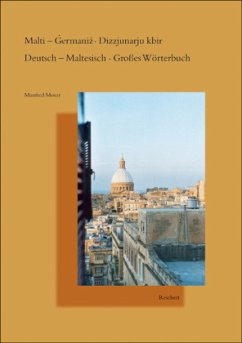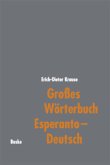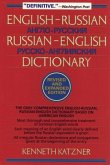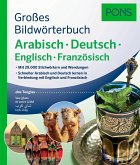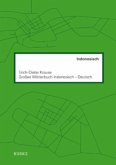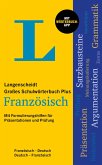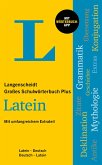Dieses Wörterbuch Maltesisch-Deutsch / Deutsch-Maltesisch schlägt eine direkte Brücke zwischen den beiden Sprachen im Rahmen der Europäischen Union. Mit mehr als 64.000 Einträgen entspricht es etwa dem aktiven Wortschatz eines Durchschnittssprechers der jeweiligen Sprache und ist damit das bislang umfangreichste Wörterbuch für diese Sprachkombination. Der Schwerpunkt liegt dabei auf dem Alltagsvokabular, sodass dieses praktische Wörterbuch nicht nur für Sprachwissenschaftler und Dolmetscher, sondern auch für an der Sprache interessierte Touristen von großem Nutzen ist.
Eingeführt wird es mit Erklärungen zur Struktur der jeweiligen Sprache, Hinweisen zur Betonung und zur Aussprache. Hierbei wird eine Suchhilfe angeboten, die es ermöglicht, das betreffende Stichwort auch von allen grammatikalischen Formen des Wortes her zu finden. Bei den einzelnen Stichwörtern werden die unterschiedlichen Formen der Deklination bzw. Konjugation in der üblichen Kurzform angegeben.
Bei gleichlautenden Wörtern, die je nach Zusammenhang verschieden übersetzt werden müssen, wird durch Klammern und Kursivschrift auf den intendierten Sinn verwiesen. Um verschiedene Konnotationen eines Wortes leichter zu erfassen, kann man jede Bedeutung eines Wortes, die im einen Teil des Wörterbuches vorhanden ist, auch im anderen Teil als Stichwort finden.
Eingeführt wird es mit Erklärungen zur Struktur der jeweiligen Sprache, Hinweisen zur Betonung und zur Aussprache. Hierbei wird eine Suchhilfe angeboten, die es ermöglicht, das betreffende Stichwort auch von allen grammatikalischen Formen des Wortes her zu finden. Bei den einzelnen Stichwörtern werden die unterschiedlichen Formen der Deklination bzw. Konjugation in der üblichen Kurzform angegeben.
Bei gleichlautenden Wörtern, die je nach Zusammenhang verschieden übersetzt werden müssen, wird durch Klammern und Kursivschrift auf den intendierten Sinn verwiesen. Um verschiedene Konnotationen eines Wortes leichter zu erfassen, kann man jede Bedeutung eines Wortes, die im einen Teil des Wörterbuches vorhanden ist, auch im anderen Teil als Stichwort finden.
A "bridge" between Maltese and German
SEVEN YEARS AGO, Manfred Moser and Christopher Meilak published their Maltese-German dictionary Dizzjunarju-Wörterbuch. Malti-Germaniz/Maltesisch-Deutsch, Deutsch-MaltesischlGermaniz-Malti (PEG, San Gwann, 1999), which was the first linguistically significant Maltese-German/German-Maltese dictionary.
Manfred Moser, with the collaboration of Sharon Meyer and Joe Felice Pace, has now published his Dizzjunarju kbir - Großes Wörterbuch. This work is the most extensive and elaborate Maltese-German/German-Maltese dictionary ever published. It consists of 870 pages, of which 425 make up the Maltese-German section and 445 the German-Maltese section.
Besides a short introduction by the former Maltese ambassador to Germany, William C. Spiteri, there is a preface by Moser himself and some background information by Mr Felice Pace, followed by advice to the user, all written in both Maltese and German.
In bis preface Moser writes that, at the time he and Meilak were giving the finishing touches to their Dizzjunarju-Wörterbuch in the late Nineties, the first three volumes of Professor Joseph Aquilina's English-Maltese Dictionary (A-D, E-L and M-R) were published by Midsea Books. The fourth volume (S-Z) came out one year later.
To expand on the basic vocabulary contained in his and Meilak's first dictionary of 1999, for his Dizzju-narju Kbir Moser makes use primarily of the four volumes of Aquilina's dictionary. (...)
The dictionary lists and explains 64,000 common words used in Maltese and German, "il-vokabularju ordinarju-attiv" used by native speakers of the two languages (den aktiven Wortschatz eines Durchschnittssprechers der jeweiligen Sprache).
Moser makes it clear that his aim was to produce a practical dictionary for everyday use. It was not his intention to produce a scientifically comprehensive dictionary involving aspects like etymology, Wortfamilien, or, in the case of Maltese, explanations about the derivation of words from their Semitic roots.
For this reason, the declension (in German) and the plural form of nouns in both languages, as well as the essential information concerning the conjugation of verbs, are included immediately following the entry for eich noun or verb. This is one of the dictionary's outstanding practical assets. In most English-German dictionaries, for example, the explanation of the verb sleep would statt as follows: "sleep ir. vi. schlafen...". The abbreviation ir. means "irregular", and the user has to look up elsewhere in the dictionary or his grammar book the irregular forms of the verb schlafen.
In Moser's dictionary the entry for raqad starts as follows: 'raqad; rqadt; orqod, orqdu; rieqed, rieqda, reqdin schlafen; schläfst; schlief, geschlafen... " The most important information regarding the verb is therefore immediately available in both Maltese and German.
In the case of nouns, beside the meanings of die words themselves, the essential grammatical information necessary for the correct use of the individual lexemes is also included together with the entry. (...)
A German person using the dictionary, therefore, finds all the relevant semantic and grammatical information necessary to use the Maltese words correctly, including the three most common meanings of Bauer and the forms (masculine, feminine and plural) of their Maltese counterparts. The less common meaning of the word Bauer in German (the 'jack' in a pack of cards - il-valè) is left out.
For the Maltese person using the dictionary, the three entries for Bauer quoted above contain all the essential Information, i.e. (1) the gender of the words (...); (2) the inflexion depending on the case (...); (3) the plural form (...). The explanations given are clear; various print styles and letter sizes are used for different functions e.g. smaller print for the less important or additional information, as when a literal translation of an idiomatic expression is provided.
Of all the words available in the publications he consulted, Moser considered for his databank primarily those words used in everyday communication. Furthermore, foreign words of Romance or English origin in both languages were not included, unless their written form has changed so much that they can no longer be easily recognised and understood. Hence, in the Maltese-German section, words like wajper, wejter, lawdspiker and woxer are included while cockpit, whisky, pop and trend are not listed in either of the sections as they can easily be understood by native speakers of both languages.
Specialised technical terms like the German word Epiliaskop (epidiascope) which are not used in common everyday language, and which are very similar in both languages anyway, are omitted in favour of common
words like Stricknadel (labra talmalja). On the other hand, most terms from the sphere of the electronic media seem to be missing, even such common everyday words as das Handy (mobile phone/mowbajl).
Idioms are only listed when the meaning of their constituent words is considerably different from the meaning of the whole group of words. (..)
The German colloquial phrase ins Gras beißen (to die) means literally "to bite into the gras". It is aptly translated into Malfese as ghalaqlu c-cens. The same principle is adopted in the case of German entries made up of two or more words where the individual meaning of the words might be misleading. (...)
At the end of his preface, besides thanking the Maltese native speakers who helped him, Moser underlines the generosity of Frau Ursula Reichert of the Reichert Verlag publishing house in Wiesbaden who, "despite the obvious difficulties on the book market, accepted the risk of publishing the book". (...)
Manfred Moser's Dizzjunarju kbir is yet another major German contribution to both the study of Maltese and to Maltese-German cultural relations in general. There is no doubt that his work represents milestone in the history of Maltese-German linguistic studies. It comes 400 years alter the Stuttgart Scholar Hieronymus Megiser published the first list of 121 Maltese words with their German meanings in his Propugnaculum Europae (Leipzig, 1606).
There are not many Germans who study Maltese, but among those who occupy themselves with our language, there have always been those who excel with their diligence and ingenuity, reflecting in their work their deep sense of appreciation for a small nation with a language that, despite all odds, has survived throughout the ages.
Manfred Moser is one of them.
(...) Moser hopes that his dictionary will function as a "bridge" between the two languages within the European context. The dictionary will be an essential tool for Maltese students of German and for German interested in Maltese. It comes at an opportune moment, following a marked increase in the demand for translations from German into Maltese and vice-versa over the past couple of years."
Albert Friggieri
In: The Sunday Times. January 29, 2006. p. 33.
-------------------------------------
-------------------------------------
"Rez. hat sich hiemit seiner Pflicht entledigt, die unterschiedlichen Aspekte des Wörterbuchs aufzuzeigen, die ihm optimierbar erscheinen. Dass soll aber nicht den Blick davon ablenken, dass die positiven und erfreulichen Aspekte weit überwiegen; wie man auch nicht vergessen darf, dass ein Wörterbuch, das lexikographisches Neuland erschließt und dazu in seiner ersten Auflage erscheint, das "Recht auf Fehler" hat. Dem Verf. ist auch zu Gute zu halten, dass er offenbar nicht von der Semitistik/Arabistik oder der allgemeinen Linguistik herkommt (sonst hätte er sicher nicht von einem "phönizisch-arabischen Sprachkreis" - so zweimal S. XVII - gesprochen und damit für den offenbar unausrottbaren "Phöniziermythos" wieder eine Lanze gebrochen, und er hätte z.B. eine Aussprache-Erklärung wie "w eher wie u statt wie w" - S. XIXf. statt "bilabial bzw. mit beiden Lippen gebildet, wie z.B. im Englischen" - zu meiden gewusst). In summa spürt man in diesem Lexikon ganz deutlich eine große Liebe zu Malta und eine ehrliche Bemühung um dessen ja meist so stiefmütterlich behandelte Sprache, die Rez. dankbar anerkennt (wie er diese auch teilt).
Bleibt nur noch zu sagen, dass die Ausstattung des Buches keinen billigen Wunsch offen lässt, außer vielleicht bei dem (im Impressum nicht erwähnten) Titelphoto, einem für Rez. verunglückten und wenig einladenden Amateur-Schnappschuss aus einem Oberstockfenster über die Dächer von Valletta auf die Kuppel der Anglikanischen Kathedrale, links verschwommen-grau begrenzt (Fensterladen?) und im Vordergrund dominiert von einer eher tristen Dachterrasse - da hätte es zur piktorialen Emblematisierung von "Malta" doch ganz andere Motive gegeben... Rez. möchte aber nicht mit dieser Bagatell-Kritik enden, sondern mit seinem Dank an Verf. (und Verlag) für dieses doch ganz überwiegend schöne und nützliche Buch."
In: Wiener Zeitschrift für die Kunde des Morgenlandes. 96 (2006). S. 491-495.
-------------------------------------
"The lexical part of it - and thus the most important component of the Dizzjunarju kbir - is an excellent piece of lexicography which will surely help to make the Maltese language more accessible to speakers of German and vice versa. Moreover, it is an indispensable tool for linguists and philologists who work on Maltese language and literature (and at the same time, a good starting point for Maltesespeaking scholars of German). Students of oriental languages will also appreciate to have this dictionary within reach. It is hoped that many more Melitensia will appear on the book-market outside the island state in the near future."
In: STUF Sprachtypologie und Universalforschung. 60 (2007) 3. S. 263-264.
SEVEN YEARS AGO, Manfred Moser and Christopher Meilak published their Maltese-German dictionary Dizzjunarju-Wörterbuch. Malti-Germaniz/Maltesisch-Deutsch, Deutsch-MaltesischlGermaniz-Malti (PEG, San Gwann, 1999), which was the first linguistically significant Maltese-German/German-Maltese dictionary.
Manfred Moser, with the collaboration of Sharon Meyer and Joe Felice Pace, has now published his Dizzjunarju kbir - Großes Wörterbuch. This work is the most extensive and elaborate Maltese-German/German-Maltese dictionary ever published. It consists of 870 pages, of which 425 make up the Maltese-German section and 445 the German-Maltese section.
Besides a short introduction by the former Maltese ambassador to Germany, William C. Spiteri, there is a preface by Moser himself and some background information by Mr Felice Pace, followed by advice to the user, all written in both Maltese and German.
In bis preface Moser writes that, at the time he and Meilak were giving the finishing touches to their Dizzjunarju-Wörterbuch in the late Nineties, the first three volumes of Professor Joseph Aquilina's English-Maltese Dictionary (A-D, E-L and M-R) were published by Midsea Books. The fourth volume (S-Z) came out one year later.
To expand on the basic vocabulary contained in his and Meilak's first dictionary of 1999, for his Dizzju-narju Kbir Moser makes use primarily of the four volumes of Aquilina's dictionary. (...)
The dictionary lists and explains 64,000 common words used in Maltese and German, "il-vokabularju ordinarju-attiv" used by native speakers of the two languages (den aktiven Wortschatz eines Durchschnittssprechers der jeweiligen Sprache).
Moser makes it clear that his aim was to produce a practical dictionary for everyday use. It was not his intention to produce a scientifically comprehensive dictionary involving aspects like etymology, Wortfamilien, or, in the case of Maltese, explanations about the derivation of words from their Semitic roots.
For this reason, the declension (in German) and the plural form of nouns in both languages, as well as the essential information concerning the conjugation of verbs, are included immediately following the entry for eich noun or verb. This is one of the dictionary's outstanding practical assets. In most English-German dictionaries, for example, the explanation of the verb sleep would statt as follows: "sleep ir. vi. schlafen...". The abbreviation ir. means "irregular", and the user has to look up elsewhere in the dictionary or his grammar book the irregular forms of the verb schlafen.
In Moser's dictionary the entry for raqad starts as follows: 'raqad; rqadt; orqod, orqdu; rieqed, rieqda, reqdin schlafen; schläfst; schlief, geschlafen... " The most important information regarding the verb is therefore immediately available in both Maltese and German.
In the case of nouns, beside the meanings of die words themselves, the essential grammatical information necessary for the correct use of the individual lexemes is also included together with the entry. (...)
A German person using the dictionary, therefore, finds all the relevant semantic and grammatical information necessary to use the Maltese words correctly, including the three most common meanings of Bauer and the forms (masculine, feminine and plural) of their Maltese counterparts. The less common meaning of the word Bauer in German (the 'jack' in a pack of cards - il-valè) is left out.
For the Maltese person using the dictionary, the three entries for Bauer quoted above contain all the essential Information, i.e. (1) the gender of the words (...); (2) the inflexion depending on the case (...); (3) the plural form (...). The explanations given are clear; various print styles and letter sizes are used for different functions e.g. smaller print for the less important or additional information, as when a literal translation of an idiomatic expression is provided.
Of all the words available in the publications he consulted, Moser considered for his databank primarily those words used in everyday communication. Furthermore, foreign words of Romance or English origin in both languages were not included, unless their written form has changed so much that they can no longer be easily recognised and understood. Hence, in the Maltese-German section, words like wajper, wejter, lawdspiker and woxer are included while cockpit, whisky, pop and trend are not listed in either of the sections as they can easily be understood by native speakers of both languages.
Specialised technical terms like the German word Epiliaskop (epidiascope) which are not used in common everyday language, and which are very similar in both languages anyway, are omitted in favour of common
words like Stricknadel (labra talmalja). On the other hand, most terms from the sphere of the electronic media seem to be missing, even such common everyday words as das Handy (mobile phone/mowbajl).
Idioms are only listed when the meaning of their constituent words is considerably different from the meaning of the whole group of words. (..)
The German colloquial phrase ins Gras beißen (to die) means literally "to bite into the gras". It is aptly translated into Malfese as ghalaqlu c-cens. The same principle is adopted in the case of German entries made up of two or more words where the individual meaning of the words might be misleading. (...)
At the end of his preface, besides thanking the Maltese native speakers who helped him, Moser underlines the generosity of Frau Ursula Reichert of the Reichert Verlag publishing house in Wiesbaden who, "despite the obvious difficulties on the book market, accepted the risk of publishing the book". (...)
Manfred Moser's Dizzjunarju kbir is yet another major German contribution to both the study of Maltese and to Maltese-German cultural relations in general. There is no doubt that his work represents milestone in the history of Maltese-German linguistic studies. It comes 400 years alter the Stuttgart Scholar Hieronymus Megiser published the first list of 121 Maltese words with their German meanings in his Propugnaculum Europae (Leipzig, 1606).
There are not many Germans who study Maltese, but among those who occupy themselves with our language, there have always been those who excel with their diligence and ingenuity, reflecting in their work their deep sense of appreciation for a small nation with a language that, despite all odds, has survived throughout the ages.
Manfred Moser is one of them.
(...) Moser hopes that his dictionary will function as a "bridge" between the two languages within the European context. The dictionary will be an essential tool for Maltese students of German and for German interested in Maltese. It comes at an opportune moment, following a marked increase in the demand for translations from German into Maltese and vice-versa over the past couple of years."
Albert Friggieri
In: The Sunday Times. January 29, 2006. p. 33.
-------------------------------------
-------------------------------------
"Rez. hat sich hiemit seiner Pflicht entledigt, die unterschiedlichen Aspekte des Wörterbuchs aufzuzeigen, die ihm optimierbar erscheinen. Dass soll aber nicht den Blick davon ablenken, dass die positiven und erfreulichen Aspekte weit überwiegen; wie man auch nicht vergessen darf, dass ein Wörterbuch, das lexikographisches Neuland erschließt und dazu in seiner ersten Auflage erscheint, das "Recht auf Fehler" hat. Dem Verf. ist auch zu Gute zu halten, dass er offenbar nicht von der Semitistik/Arabistik oder der allgemeinen Linguistik herkommt (sonst hätte er sicher nicht von einem "phönizisch-arabischen Sprachkreis" - so zweimal S. XVII - gesprochen und damit für den offenbar unausrottbaren "Phöniziermythos" wieder eine Lanze gebrochen, und er hätte z.B. eine Aussprache-Erklärung wie "w eher wie u statt wie w" - S. XIXf. statt "bilabial bzw. mit beiden Lippen gebildet, wie z.B. im Englischen" - zu meiden gewusst). In summa spürt man in diesem Lexikon ganz deutlich eine große Liebe zu Malta und eine ehrliche Bemühung um dessen ja meist so stiefmütterlich behandelte Sprache, die Rez. dankbar anerkennt (wie er diese auch teilt).
Bleibt nur noch zu sagen, dass die Ausstattung des Buches keinen billigen Wunsch offen lässt, außer vielleicht bei dem (im Impressum nicht erwähnten) Titelphoto, einem für Rez. verunglückten und wenig einladenden Amateur-Schnappschuss aus einem Oberstockfenster über die Dächer von Valletta auf die Kuppel der Anglikanischen Kathedrale, links verschwommen-grau begrenzt (Fensterladen?) und im Vordergrund dominiert von einer eher tristen Dachterrasse - da hätte es zur piktorialen Emblematisierung von "Malta" doch ganz andere Motive gegeben... Rez. möchte aber nicht mit dieser Bagatell-Kritik enden, sondern mit seinem Dank an Verf. (und Verlag) für dieses doch ganz überwiegend schöne und nützliche Buch."
In: Wiener Zeitschrift für die Kunde des Morgenlandes. 96 (2006). S. 491-495.
-------------------------------------
"The lexical part of it - and thus the most important component of the Dizzjunarju kbir - is an excellent piece of lexicography which will surely help to make the Maltese language more accessible to speakers of German and vice versa. Moreover, it is an indispensable tool for linguists and philologists who work on Maltese language and literature (and at the same time, a good starting point for Maltesespeaking scholars of German). Students of oriental languages will also appreciate to have this dictionary within reach. It is hoped that many more Melitensia will appear on the book-market outside the island state in the near future."
In: STUF Sprachtypologie und Universalforschung. 60 (2007) 3. S. 263-264.

